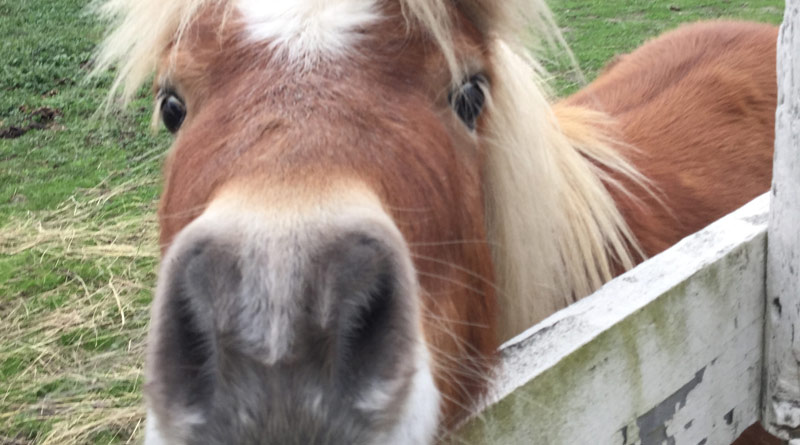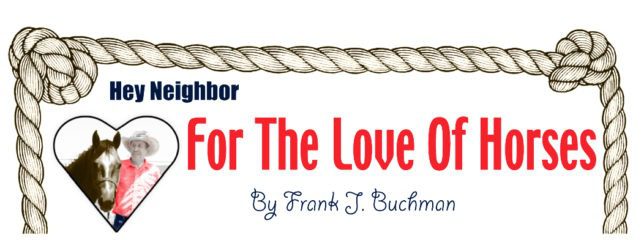Horse owners have continuing questions about coronavirus, and answers are difficult to find.
“There are many types of human coronaviruses,” according to the Center for Disease Control and Prevention (CDC). “These include some that commonly cause mild upper-respiratory tract illnesses.”

Of concern now is COVID-19 as defined by the World Health Organization (WHO) on February 11, 2020, CDC officials clarified.
Caused by the novel coronavirus SARS-CoV-2, the disease started in Wuhan, China, in late 2019 and has since spread worldwide.
Formerly referred to as “2019-nCoV,” COVID-19 is an acronym that stands for coronavirus disease of 2019. “CO” represents corona, “VI” is for virus, “D” for disease, and “19” is for the year.
CDC collaborates to create information and tools that people and communities need to protect their health through prevention of disease.
Syndicated reports from equine veterinarians emphasize that equine enteric coronavirus and COVID-19 are not the same strain.
“There is no indication that either is transmissible between species,” veterinarians verified.
Dr. Nathan Slovis, equine veterinarian, said the coronavirus strain in horses caused gastrointestinal illness.
One research trial found 27 percent of healthy foals and 29 percent of diseased foals had coronavirus in their manure.
“Relevant to present conditions there are no cases of respiratory illness associated with the equine strain in humans. Therefore, we can infer that horses infected with the coronavirus will not spread it to humans,” said Dr. Slovis.
“No evidence of COVID-19 horse-human spread has been reported,” CDC officials verified.
“However some dogs and cats have been infected by COVID-19 after close contact with COVID-19 infected people,” CDC officials confirmed. “As of April 22, there is no evidence that pets can spread the virus to people.
“Different than COVID-19, equine coronavirus is an enteric, or gastrointestinal, disease in the horse,” CDC officials explained again.
“There is no evidence that equine enteric coronavirus poses a threat to humans or other animal species,” CDC officials reiterated.
Detailed information from veterinarians about equine coronavirus was provided by CDC.
Equine coronavirus is transmitted between horses when manure from an infected horse is ingested by another horse.

It can be transmitted if a horse makes oral contact with items or surfaces that have been contaminated with infected manure.
Typically mild clinical signs include anorexia, lethargy, fever, colic or diarrhea.
Veterinarians diagnose equine enteric coronavirus by testing fecal samples,
While frequency of this disease is low, when diagnosed, treatment recommendations were given.
The horse should have supportive care such as fluid therapy and anti-inflammatories.
Biosecurity precautions quarantining the infected horse are necessary while keeping facilities as clean as possible.
Disposal of manure will help decrease the chances of horses contracting the virus.
The Foundation for the Horse, a 501(c)(3) nonprofit, developed a fund to help horses threatened by the coronavirus economic fallout.
They will work with equine organizations to provide feed assistance. Meanwhile, veterinary care funds are also being distributed.
“The Foundation for the Horses provides a conduit to directly help horses in crisis,” said Richard Mitchell, advisory council chairman. “We are reaching out to equine veterinarians, horse owners, and industry leaders to support horses at-risk due to coronavirus.”
A number of horse related business are also providing assistance to horse people impacted by coronavirus.
Among those, Haygain Health is offering discounts on its horse health products to all first responders. Schleese Tack will donate $50 from every new saddle sold to a COVID 19 related charity. Additional assistance is being reported daily.
As authorities are taking action to mitigate the spread of COVID-19, every horse activity is now being impacted.
Locally and nationwide rodeos, jackpot events, horse shows, clinics, fairs and more are being canceled or postponed.
The iconic Kentucky Derby has been postponed to September, Kenneland has canceled its spring meet and live racing is canceled at Belmont.
However a Kent, Ohio, assisted living community invited unusual visitors last Friday in hopes of bringing smiles to its residents.
Kentridge Assisted Living has had to restrict visitors to only staff. On Friday, the residents had a different view from their windows.
Horses from the Happy Trains Farm and Animal Sanctuary paraded past their windows, visiting through the glass.
“I want to see my residents amazed. I want to see them smiling. I want to see them just beaming from ear to ear,” said John McAninch, Kentridge executive director.
“The horses are doing the best that they possibly can in this situation. I’m proud of them for walking right up to the windows,” said Kayleigh Miller of Happy Trails Sanctuary.
“We have to think outside the box. We have to find ways to keep the residents engaged. We are in new times so we are going to keep working on things like this,” said McAninch.
“It is advisable that horse owners and all others strictly observe distancing, hand-washing and other infection-control measures,” CDC officials reminded.
